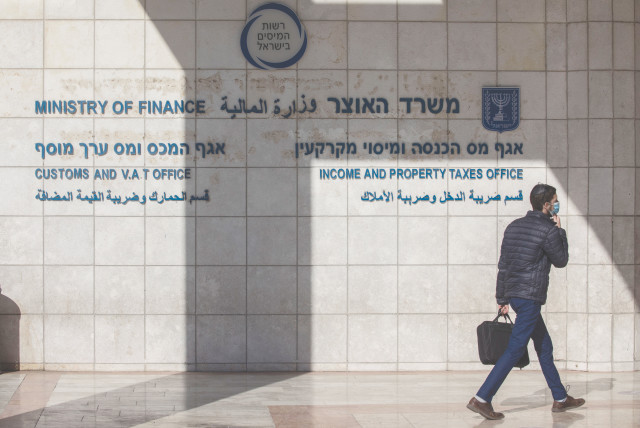Your Taxes: Share options - red flags! - opinion

As always, consult experienced professional advisers in each country at an early stage in specific cases.
The tax break rules are being tightened up for new Employee Share Ownership Plans beginning January 1, 2025. This will be important for many hi-tech and other companies and their employees. (Regulations Number 11461 of September 17, 2024)
Current ESOP tax breaks
Section 102 of the Income Tax Ordinance (ITO) generally prescribes a 25-28% tax rate instead of up to 50% for salary bonuses, and this is deferred until an employee receives cash if various conditions are met.
In brief, Section 102 conditions include:
(1) The “capital” track must be elected (rather than the “salary” track).
(2) The options or shares must generally be parked at an approved trustee for at least two years.
(3) Approval of the ESOP and the Trustee must be requested from the Israel Tax Authority (ITA) at least 30 days before the ESOP is implemented – the Trustee’s task is to check that tax is duly paid.
(4) Employees are not entitled to 10% or more of the shares or control rights.
(5) If the ESOP relates to shares of a foreign parent company, there must be an Israeli annex superimposing Section 102 conditions on Israeli employees.
(6) Only employees are eligible.
(7) Other conditions also apply.
In practice, Section 102 ESOP is popular because of the tax breaks.
What's new?
The tax breaks remain, but the approval procedures are being strengthened. The ITA feels it is in the dark about the operation of ESOPs until tax eventually gets paid. So, starting in 2025, when notifying the ITA of any new ESOP or change in an existing ESOP, it will be necessary to complete a questionnaire (“Annex D”). This contains 17 questions that the ITA regards as “red flags.” If the ITA doesn’t like the answers, it may well swing into action.
The ITA intends to turn the red flag questionnaire into an online form and enable Q&A dialogue soon.
The 17 red flags
Following is a summary of the 17 red flags and some comments.
One: details of the reporting company.
Two: details of the Trustee.
Three: Is this the first time?
Four: Is this about a change to an existing ESOP? If so, give details.
Five: Will there be any changes by the end of the next tax year? Comment: This calls for a crystal ball commitment, apparently.
Six: Is the Israeli Annex attached?
Seven: Is the ESOP in Hebrew or English? Comment: Most ESOPs are in English; no translation needed.
Eight: Will share allotments be to employees only? Comment: Non-employees are ineligible.
Nine: Will common (ordinary) shares be allotted? Comment: No phantom shares, which are really just cash bonuses, and no shares with special rights that effectively give 10% or more control. In case of doubt, the form accepts “Inquiry Submitted on (date)” as an answer to this question and to questions 10-15 below.
Ten: Not an obligation, not redeemable? Comment: Shares are merely defined as “including options.” So bonds and redeemable shares are considered ineligible.
Eleven: Do the Articles/Bylaws of the company and the ESOP grant rights to all the following: voting, dividends, and liquidation surplus? Comment: If not, the ITA may investigate whether they are really shares.
Twelve: Do the ESOP rights expire “at the end of the transaction?” Comment: The term “transaction” isn’t defined. Comment: The ITA is presumably looking for abusive cases where the answers to questions 12-16 suggest that shares are not really involved.
Thirteen: Are the securities redeemable according to Section 312 of the Companies Law?
Fourteen: Are the vesting conditions conditional on meeting fixed goals or milestones and not on external events, such as the sale of shares of the company, new investors, or IPO?
Fifteen: Do any of the following parties have a right to buy back the ESOP rights or shares (i.e., a Call option): the company allotting shares, the reporting company, the employing group, or any related party?
Sixteen: Are any of the following parties committed to purchasing the ESOP rights or shares (i.e., a put option): the company allotting shares, the reporting company, the employing group, or any related party?
Seventeen: Are ESOP rights and the role of the Trustee protected where publicly traded companies or an IPO are involved? Or is an application to the ITA planned to fix an arrangement?
General comment
The ITA has indicated that these red flags shouldn’t impose an undue burden, and queries will be welcome.
As always, consult experienced professional advisers in each country at an early stage in specific cases.
The writer is a certified public accountant and tax specialist at Harris Consulting & Tax Ltd.
Jerusalem Post Store
`; document.getElementById("linkPremium").innerHTML = cont; var divWithLink = document.getElementById("premium-link"); if (divWithLink !== null && divWithLink !== 'undefined') { divWithLink.style.border = "solid 1px #cb0f3e"; divWithLink.style.textAlign = "center"; divWithLink.style.marginBottom = "15px"; divWithLink.style.marginTop = "15px"; divWithLink.style.width = "100%"; divWithLink.style.backgroundColor = "#122952"; divWithLink.style.color = "#ffffff"; divWithLink.style.lineHeight = "1.5"; } } (function (v, i) { });


